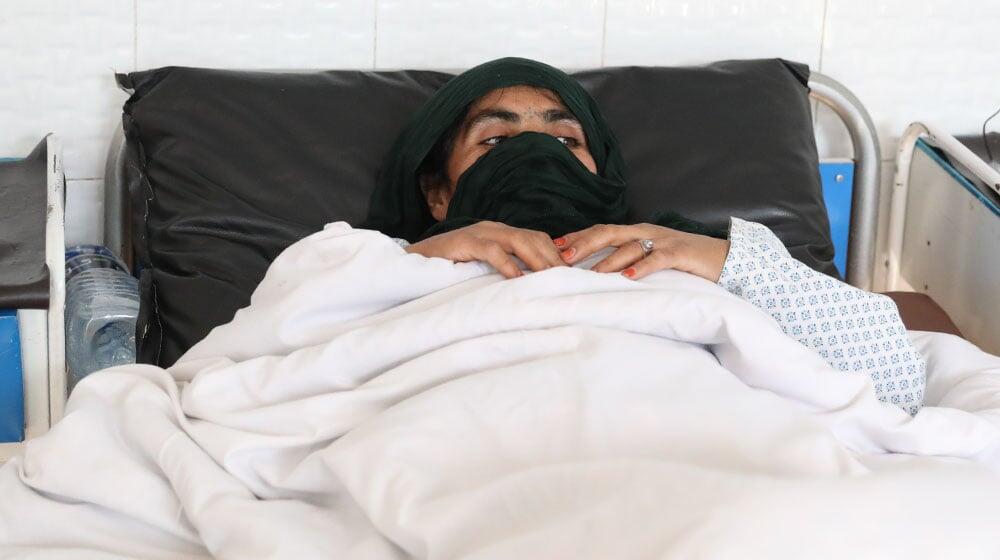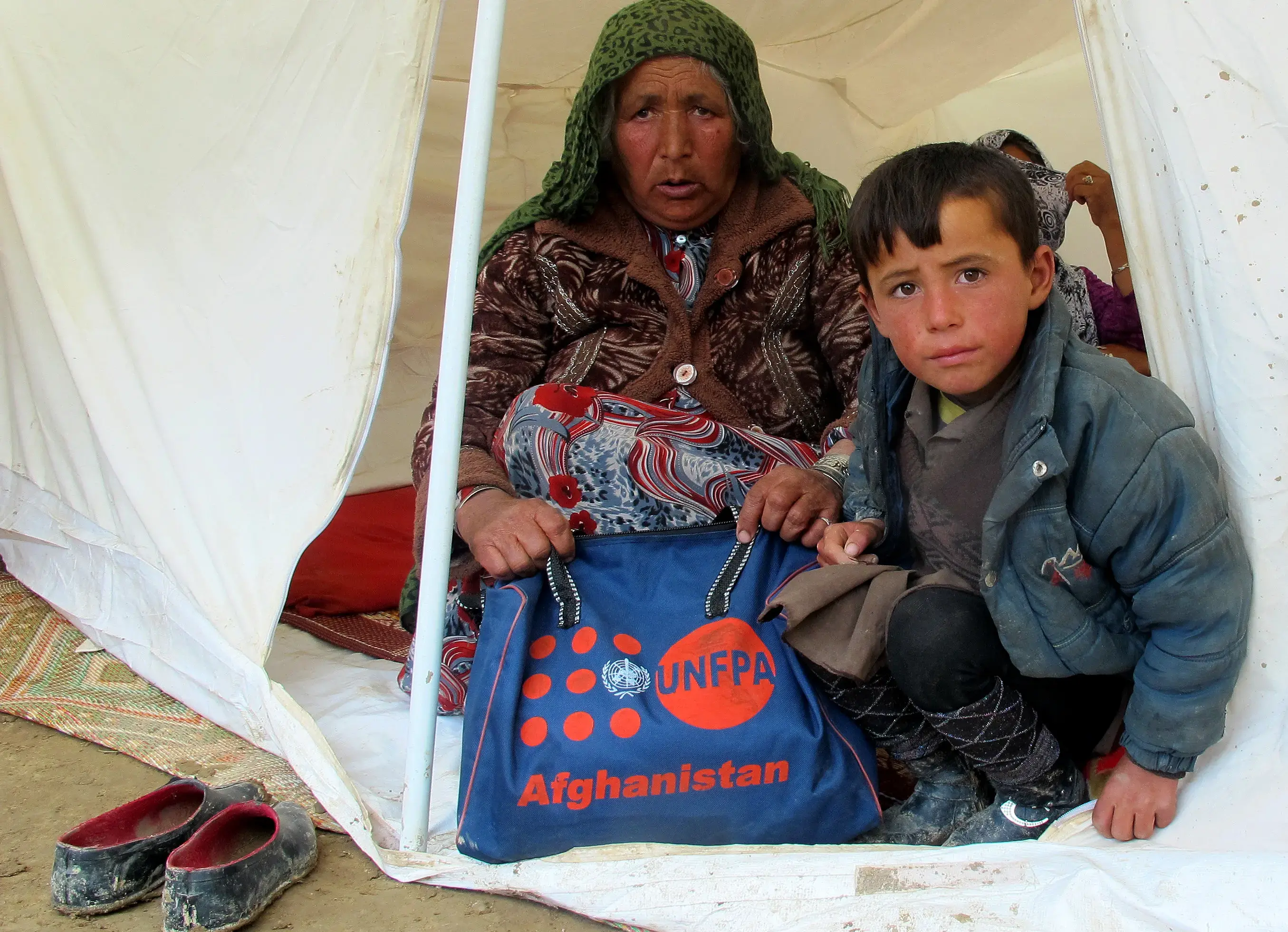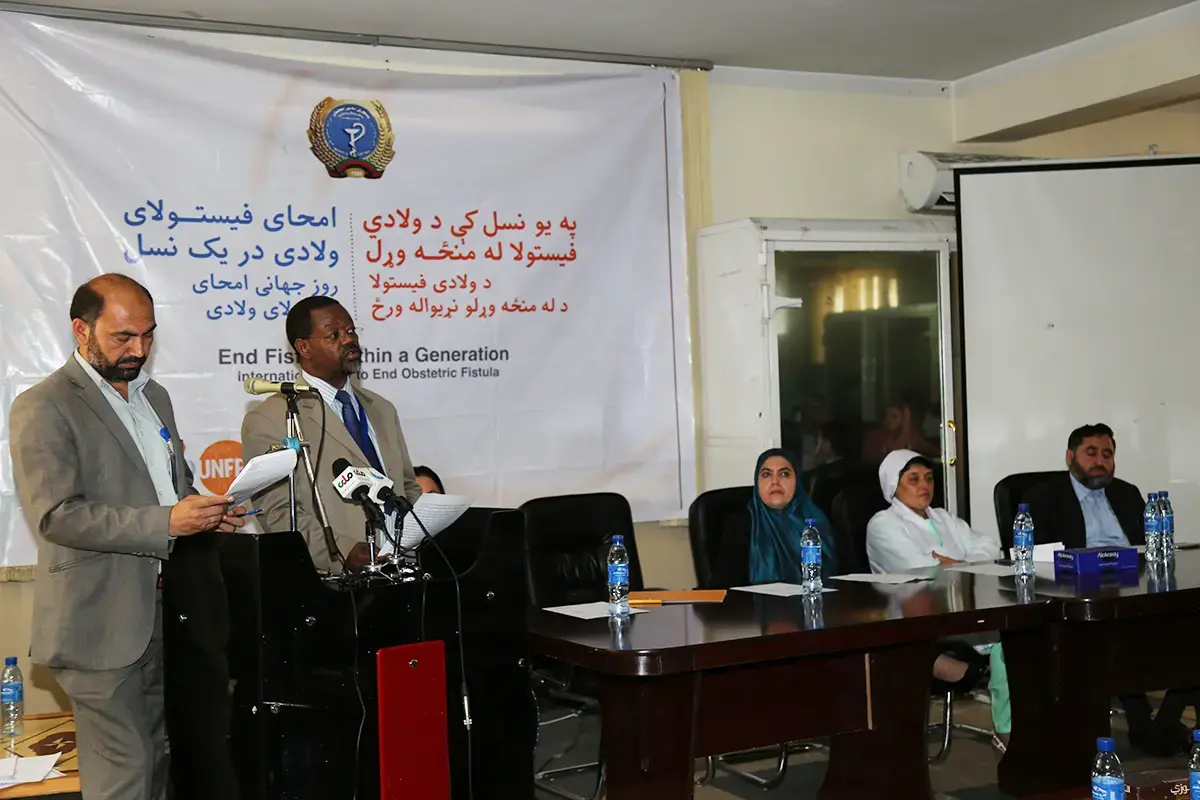Kabul, Afghanistan – Rahila Bibi* developed obstetric fistula when she gave birth for the sixth time last year. Her baby also did not survive the prolonged labour, resulting in a stillbirth.
She was in labour for three days and did not immediately go to a health facility. When she finally decided to seek professional help, it was too late.
Obstetric fistula is a hole between the birth canal and bladder and/or rectum, which commonly happens as a result of prolonged, obstructed labour without access to timely, high-quality medical treatment. It leaves women and girls leaking urine, faeces or both, and often leads to chronic medical problems, depression, social isolation and deepening poverty.
Ashamed of her condition, the 35-year-old Rahila did not tell anyone what she was going through. She isolated herself from family and friends for fear of being rejected because of the obstetric fistula. “I refrained from participating in family gatherings and events, which caused me immense pain. I felt excluded from society,” Rahila narrated.
While she lived in isolation, Rahila also sought treatment for her condition. ” She visited clinics and doctors, but because she did not have money, she was unable to find a lasting treatment.
Despite the setbacks, Rahila persisted until she learned that the Malalai Maternity Hospital in Kabul could be the answer to her prayer. “One of the doctors that I consulted with informed me that I can avail of the fistula repair surgery from Malalai Maternity Hospital in Kabul,” she recalls.
With renewed hopes, Rahila and her husband visited the hospital in November 2023.
“She was in a poor psychological state and distressed when she came to us,” said Dr. Huma Mangal, a fistula surgeon and trainer at the hospital. “After conducting initial examinations, it was confirmed that she had an obstetric fistula.”
After a series of consultations with Rahila and her husband, the couple finally agreed to proceed with the surgery that would repair her fistula.
Further explaining Rahila’s condition, Dr. Huma said failure to seek medical assistance during childbirth and prolonged labour could lead to the foetus changing its position and failing to progress into the birth canal. “This was the unfortunate outcome for Rahila, who lost her baby and developed a vaginal fistula,” Dr. Huma said.
Malalai Maternity Hospital is one of the three hospitals in Afghanistan that has the capacity to perform fistula repair surgery. The two others are the Herat Regional Hospital and Jalalabad Regional Hospital. UNFPA had previously supported the training of doctors for fistula surgery in these hospitals and provided medical equipment for their fistula wards.
Following her successful surgery, Rahila looks forward to living a normal life again.
“I feel better. I know that I will be happy again, and I can’t wait to see my friends and family members,” Rahila told UNFPA from her hospital bed.
Dr. Nafiza Hamrah, a fistula surgeon at Malalai Maternity Hospital, said the hospital treated 145 cases of obstetric fistula in 2023 and 80 women so far this year.
Reiterating this year’s theme of “Breaking the Cycle: Preventing Fistula Worldwide” for the International Day to End Obstetric Fistula, Dr. Hamrah said families and communities play an important role in fistula prevention.
“We need to educate families and communities about the importance of seeking antenatal care from skilled health providers during pregnancy and delivery,” she said.
“Regrettably, obstetric fistula is a neglected and overlooked condition in society. As a healthcare professional, I urge women suffering from fistula not to feel ashamed about their inability to control urinary and hygiene issues, as this can worsen their condition,” she added.
*Name changed for privacy reasons.





